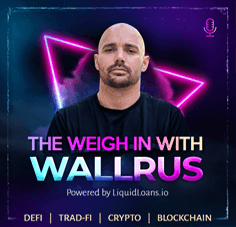What is a Utility Token?

Out of the 20,000+ cryptocurrencies that exist today, utility tokens make up the majority of them. Some of them were so successful that became coins and blockchains (BnB). Others are so popular that trade more volume than Bitcoin (USDT).
Utility tokens have broad use cases. And while they wouldn't exist without blockchains like Ethereum or Pulsechain, crypto markets would be very different without them. Because cryptocurrency isn't just about investing: like money, it has no intrinsic value until you give it a use.
There's one thing that both innovators and regulators agree on. Crypto might be a bubble, but blockchain technology is the future. And nothing shows its different use cases better than utility tokens.
Quick Takes:
- Utility tokens are the broadest category, which is different from security, governance, and other tokens. But they can also have all those secondary uses. These hybrid utility tokens are the most common.
- Utility tokens are used in decentralized applications (dApps) to tokenize digital goods and services. They run on other cryptocurrencies' blockchains, and they're not required for most dApps. The most popular platforms didn't start with a token— some of them still don't have one.
- The biggest mistake with utility tokens is to make them too complex or do too much.
Utility Token Definition
A utility token is a unit of economic value that can be exchanged for digital assets or services. While not all dApps need tokens, all utility tokens belong to a dApp (and a blockchain). That's because the token only has utility within its platform, and should the dApp disappear, the token would lose all value.
So what makes a utility token valuable?
- The underlying dApp offers a product or service with product-market fit
- That product/service is linked to the token— so users don't sell as soon as they receive the tokens
- It has deflationary tokenomics, such as reasonable max supply, high circulating supply, token-burning contracts, and redemption mechanisms.
Since we're talking of utility tokens and not coins, value doesn't necessarily mean higher prices. Prices often rise as a result of high demand and product-market fit. Whether they stay at those prices or fall depends on utility.
Utility Token Examples

Good examples of utility tokens are:
- TRB (and LINK). Tellor is a decentralized blockchain oracle (data-accuracy tool). TRB is the incentive given to reporters for uploading accurate price data and updating it. This utility token ensures that data is always reliable so that developers want to integrate Tellor for their dApps.
- ANKR. It's a payment method and utility token for accessing Internet services. Ankr provides "decentralized RPC services," which protect web developers from censorship and network blacklisting. It's a pay-as-you-go software where ANKR is the currency.
- USDL (and LUSD). We don't buy stablecoins for profit expectations but for utility: value protection. Some stablecoins are less risky than others, which depends on the collateral used, redemption, and liquidation mechanisms. USDL is always redeemable for $1 because it's an algorithmic stablecoin with high liquidity efficiency.
- Hybrid Exchange tokens like BNB. Holding BnB means you can save on fees, buy at a discount, win airdrops, and other financial perks at the Binance exchange. Instead of seeing BNB as "extra money," people buy more BNB because of platform benefits. This is different from exchange tokens like KCS and CRO because BNB also has a blockchain with countless dApps.
Not-so-good examples of utility tokens are:
- AXS. Axie Infinity is a play-to-earn, pay-to-play game. Axie players compete with users to win AXS tokens, but these don't have enough utility besides governance. Thus, users started selling these, treating Axie like an income stream rather than a game, and AXS fell from over $100 to below $10.
- OXT. Orchid Network is a pay-as-you-go decentralized VPN provider. Which is valuable, except the actual VPN service doesn't have a product-market fit. Most users want the simplest one with the best price and speed. Orchid is slower, expensive, and not as appealing (in a saturated market), so it never took off.
- DENT. DentWireless seems to have utility as a decentralized mobile network. But it fails on tokenomics and incentives. There's no max supply, ~100B of circulating tokens, and several ways to earn free DENT (such as surveys, watching videos, daily rewards...)
You might argue that these projects had great "utility." Some services are very original. So why did some of them succeed and others fail?
The Biggest Trap About Utility Tokens
Creating real utility isn't about doing more things, but about results. In fact, the less needs to be done to get those results, the more valuable it is. It's about building the most effective method to solve a problem or market need.
The biggest mistake is either to solve the wrong problem or make the solution too complicated.
A solution isn't valuable if there are countless projects already providing it. Unless it's substantially faster/simpler/cheaper, there won't be enough product-market fit. The product purpose also matters: sometimes we want the bare minimum for some products or the most/best features for others.
Even if there is product-market fit, there are different ways to solve market problems. Developers have a choice: to either build a boring, minimalistic system or a complex Rube Goldberg Machine.

Many (failed) utility tokens are Rube Goldberg Machines. They use intricate systems with dozens of moving parts, many of them unnecessary. And they don't just because of bad design but because they sell.
It's harder to see the pros and cons when projects are complex. People will skip complicated whitepapers and buy these tokens because if they do so much, they must be valuable. Because complexity is impressive— when it actually works.
In business, however, everything can go wrong. And the best way to minimize problems is with the simplest design. Not only is it reliable but more scalable and efficient.
The LOAN token is simple. You stake LOAN within the Liquid Loans protocol to earn revenue from USDL borrowing and redemption fees.
Governance Token vs Utility Token
Some dApps are finished products that need no governance. But others have lots of room for improvement and troubleshooting. Since these apps are decentralized and there's no company, the user community has to find a way to organize and agree on what to do with the project.
- Is the dApp too complex?
- Should they reduce interest rewards to offer lower transaction fees?
- How do they want to spend the protocol's revenue? New features? Higher rewards? Appear on more blockchains?
Making good decisions requires governance, which can be an informal forum thread or a full-fledged legal company. In other words, off-chain or on-chain. On-chain governance involves governance tokens to decide how much voting power members have on decisions. This user collective is a flat-structure group called Decentralized Autonomous Organization (DAO).
Utility tokens are about using platform services. Governance tokens are about controlling those services. It's like being a customer and CEO of that same company at once, except your influence is proportional to your number of tokens.
Changing dApp rules is a big deal, which is why creating proposals can cost millions of tokens. But voting is available at any amount, and you get your tokens back after the decision is made. Some say that governance tokens tend to centralize the project, hence why they're compared with security tokens.
Utility Token vs Security Token
If governance tokens equal control, security tokens equal ownership. It's like buying stocks. If you can buy enough, you might own the majority of the company and take over the governance.
Ownership majority implies centralized governance, and that's the opposite of why blockchain was invented. That's why you won't find many security tokens, let alone yield dividends. But there are other similar tokens:
- Liquidity Pool tokens (LP tokens). Liquidity pools receive tokens from many users and, in exchange, give proportional LP tokens. If your deposit makes 20% of the pool's total, you get 20% of all LP tokens as a receipt. You can redeem 20% of the pool funds anytime because you have token holder proof-of-ownership.
- Tokenized stocks. These "tokens" identify as an underlying stock (e.g., DAMZN for AMZN). But they're neither created by the company nor have the same stock price (so there's no ownership whatsoever). The token "finds a price" based on trading activity— similar to Pulsechain tokens— and the only relation it has with the company is its name. More than securities, they're like fan tokens and memecoins.
- Non-fungible tokens (NFTs). Owning NFTs is like "owning Bitcoins" in your wallet, except the maximum token supply is 1. It's difficult to estimate the value of unique tokens, so instead, they're linked to digital assets like pictures, music, and videos. Owners set a subjective NFT price based on those assets, and the buyer receives proof of ownership for the creator's asset.
Except for hybrid types, utility tokens aren't linked to ownership or governance rights.
Should You Buy Utility Tokens Or Cryptocurrencies?
The difference between utility tokens and coins can be confusing. Some coins have small networks, so they're called tokens. Some tokens are so successful that become cryptocurrencies.
For crypto investing, the best choice is to buy:
- Blockchain-based coins with smart contracts (like ETH, AVAX, PLS)
- Financial utility tokens (like AAVE, LUSD, BNB)
Good blockchains make better utility tokens. And financial tokens have the most applications for every other sector. They make the dApp ecosystem grow faster, which makes the blockchain coin more valuable, which feedback back to financial tokens. Buy coins, hold tokens.
Join The Leading Crypto Channel
JOINDisclaimer:Please note that nothing on this website constitutes financial advice. Whilst every effort has been made to ensure that the information provided on this website is accurate, individuals must not rely on this information to make a financial or investment decision. Before making any decision, we strongly recommend you consult a qualified professional who should take into account your specific investment objectives, financial situation and individual needs.

Max
Max is a European based crypto specialist, marketer, and all-around writer. He brings an original and practical approach for timeless blockchain knowledge such as: in-depth guides on crypto 101, blockchain analysis, dApp reviews, and DeFi risk management. Max also wrote for news outlets, saas entrepreneurs, crypto exchanges, fintech B2B agencies, Metaverse game studios, trading coaches, and Web3 leaders like Enjin.

Development
Knowledge
Subscribe To Newsletter
Stay up-to-date with all the latest news about
Liquid Loans, Fetch Oracle and more.
Copyright © 2024 Crave Management.
All Rights Reserved.

The LL Librarian
Your Genius Liquid Loans Knowledge Assistant




